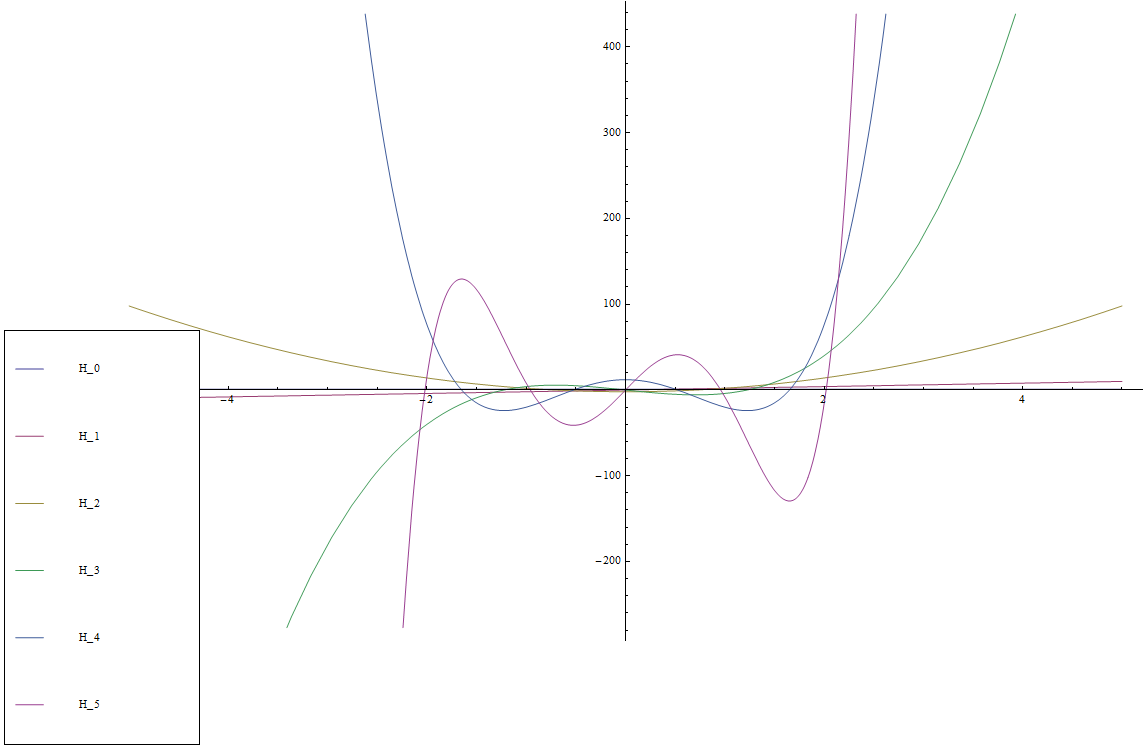Difference between revisions of "Hermite (probabilist)"
| Line 1: | Line 1: | ||
| − | The Hermite polynomials $\{H_n\}_{n=0}^{\infty}$ are a sequence of [[Orthogonal polynomial|orthogonal polynomials]]. | + | The (physicist) Hermite polynomials are a sequence of [[orthogonal polynomials]] with weight function $e^{-x^2}$. |
| + | [[File:Hermiteh(physicist).png|450px]] | ||
| + | |||
| + | The (probabilist) Hermite polynomials $\{H_n\}_{n=0}^{\infty}$ are a sequence of [[Orthogonal polynomial|orthogonal polynomials]] with weight function $e^{-\frac{x^2}{2}}$. | ||
$$\begin{array}{ll} | $$\begin{array}{ll} | ||
Revision as of 15:00, 9 October 2014
The (physicist) Hermite polynomials are a sequence of orthogonal polynomials with weight function $e^{-x^2}$.

The (probabilist) Hermite polynomials $\{H_n\}_{n=0}^{\infty}$ are a sequence of orthogonal polynomials with weight function $e^{-\frac{x^2}{2}}$.
$$\begin{array}{ll} H_0(x)=1 \\ H_1(x)=x \\ H_2(x)=x^2-1\\ H_3(x)=x^3-3x\\ H_4(x)=x^4-6x^2+3 \\ \vdots \end{array}$$
Properties
Theorem: The Hermite polynomials $H_n$ satisfy the Rodrigues' formula $$H_n(t) = (-1)^ne^{x^2}\dfrac{d^n}{dx^n}e^{-x^2}.$$
Proof: █
Theorem: (Generating function) The Hermite polynomials obey $$e^{2tx-t^2} = \displaystyle\sum_{k=0}^{\infty} \dfrac{H_k(x)t^n}{n!}.$$
Proof: █
Theorem: (Orthogonality) The Hermite polynomials obey $$\displaystyle\int_{-\infty}^{\infty} e^{-x^2}H_n(x)H_m(x)dx=\left\{ \begin{array}{ll} 0 &; m \neq n \\ 2^nn!\sqrt{\pi} &; m=n \end{array} \right..$$
Proof: █
Theorem: $H_n(x)$ is an even function for even $n$ and an odd function for odd $n$.
Proof: █